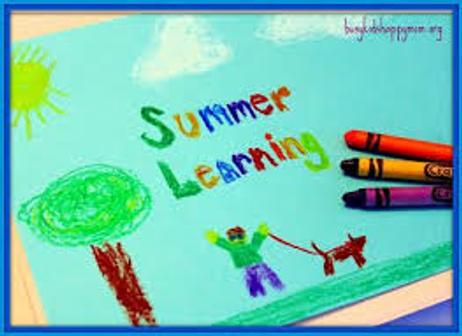Most kids approach summer vacation with gusto, filled with plans to enjoy the summer months without giving school a second thought. However, some parents and educators worry about what children won't be doing over the summer – such as math and reading activities that keep their minds sharp and ready to hit the ground running when school arrives again.
Summer learning loss is a very real phenomenon that has been documented by many reputable education and health care organizations. Fortunately, parents have options to prevent summer learning loss, ensuring their children are ready to hit the books again in the fall.
This video offers some ways to prevent summer learning loss.
What is Summer Learning Loss?
Summer learning loss is a phenomenon that occurs when children are out of the school environment for a significant period of time. During that absence, children can lose some of the skills they gained during the previous school year, particularly in the areas of math and reading.
According to an article on Reading is Fundamental, facts about learning loss, as studied by Johns Hopkins University's Center for Summer Learning, include:
- Students suffer from learning loss when they do not participate in educational activities during the summer.
- Students lose an average of about 2.6 months of grade-level equivalency in math computation skills over the summer.
- Low-income students suffer from greater learning loss than those students in higher-income families.
- Summer learning loss may be a contributing factor in the reading performance achievement gap between high and low-income students.
- Many students who qualify for federally subsidizedmeals during the school year do not receive the same nutritional content over the summer.
- Studies show that time out of school can be a dangerous time for many unsupervised children and teens.
Ron Fairchild, executive director of the Center for Summer Learning at Johns Hopkins University, told CNN, "One hundred years of research confirms that all young people are at risk of losing ground academically over the summer months." CNN also reports that this learning loss can mean an academic setback for some students that may take weeks, or even months, to overcome. Fortunately, experts have also found ways to minimize learning loss during vacation time.
This video suggests that reading is one way to prevent summer learning loss.
Say Goodbye to Summer Learning Loss
Parents and educators can work together to help prevent or minimize the effects of summer learning loss. According to a report in the Washington Post, D.C. charter schools encourage students to take summer school classes to help them retain the skills and information they retained over the previous school year. The report stated that as many as 35% of all charter school students attend summer school, compared to just 21% of students that attend other public schools in the D.C. area.
Suburban schools in the area also provide learning opportunities for students during the summer months, in the form of camps and workshops that focus on specific areas of student interest. For example, one school district offers a math camp, while another offers a writing workshop and class in robotics. Others offer opportunities in engineering, drama, or art.
Some experts say that the first step in preventing learning loss is as easy as making books more accessible, another Washington Post article reports. However, attending museums and camps during the summer offers even more diverse learning opportunities that children enjoy. If a child is struggling with a particular subject, summer is the perfect time to enlist additional instructional support to get a student over the hump.
This video offers some more suggestions for preventing summer learning loss.
Helping Low-Income Kids
While these solutions may be very realistic for middle to high-income families, low-income children may not have the same opportunities over the summer months. This explains the gradual increase in achievement gaps between the high and low-income students. Fortunately, many volunteers across the country are jumping up to help these students prevent summer learning loss, under the guidance of First Lady Michelle Obama.
ABC News reports that Mrs. Obama has launched the second annual United We Serve Summer Service Initiative, with the expressed intent of preventing summer learning loss in low-income students. With a team of volunteers, Mrs. Obama has filled more than 3,000 canvas bags with treats designed to encourage students to learn and be active and healthy over the summer months. The bags are stuffed with healthy snacks and water bottles, jump ropes and Frisbees, and books to keep kids busy over vacation.
Summer learning loss is a very real phenomenon, but it does not have to be an inevitable one. By engaging your children in fun learning activities over vacation, such as reading books, visiting museums, and attending camps, you can prevent the learning gap so your children are ready to hit the books when the school bell rings once again.
Questions? contact us on Facebook. @publicschoolreview











